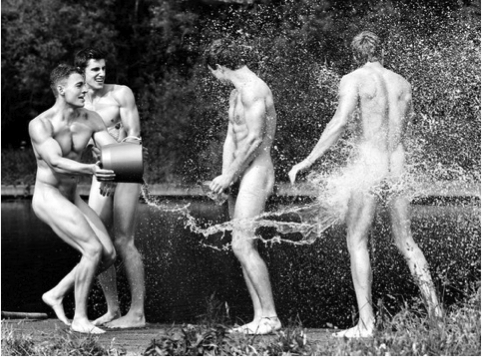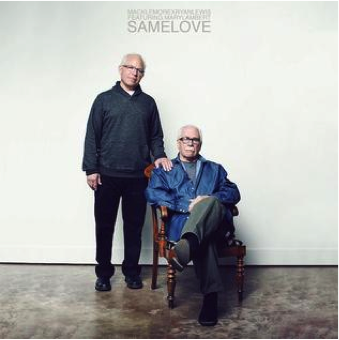by Tristan Bridges and C.J. Pascoe
 Every year, since 2009, the men of England’s Warwick University’s Rowing Team pose nude together in a series of photos that can be purchased individually or collectively as a calendar. The sales from this calendar go toward supporting their team and to raise awareness about bullying and homophobia among youth. This year, however, the team received international attention (prompting the development of a twitter account, a website, and a store to sell the photos and other team paraphernalia—like their 2013 film, “Brokeback Boathouse”). At first glance it may seem surprising that (presumably) straight men would pose naked with one another to raise money. But, when looking at other straight, young, white men’s stances on homophobia it becomes clear that, ironically, part of what is happening here is a shoring up of a particular form of heterosexual masculinity. Indeed the Warwick Women’s Rowing Team produced a similar calendar without the same amount of media attention (significantly, however, the attention they did receive was more often condemnatory).
Every year, since 2009, the men of England’s Warwick University’s Rowing Team pose nude together in a series of photos that can be purchased individually or collectively as a calendar. The sales from this calendar go toward supporting their team and to raise awareness about bullying and homophobia among youth. This year, however, the team received international attention (prompting the development of a twitter account, a website, and a store to sell the photos and other team paraphernalia—like their 2013 film, “Brokeback Boathouse”). At first glance it may seem surprising that (presumably) straight men would pose naked with one another to raise money. But, when looking at other straight, young, white men’s stances on homophobia it becomes clear that, ironically, part of what is happening here is a shoring up of a particular form of heterosexual masculinity. Indeed the Warwick Women’s Rowing Team produced a similar calendar without the same amount of media attention (significantly, however, the attention they did receive was more often condemnatory).
 The attention the Warwick boys received echoes that directed at Seattle-based hip-hop artist Ben Haggerty (Macklemore) upon the release of his hit song “Same Love” in 2012. The song, a ballad of support for gay and lesbian rights, was recorded during the 2012 campaign in Washington state to legalize same-sex marriage. It reached 11 on Billboard’s “Hot 100” list in the U.S., and hit number 1 in both New Zealand and Australia. The single cover art features an image of Ben’s uncle and his partner, Sean. Macklemore, who “outs” himself as straight in the song’s opening,
The attention the Warwick boys received echoes that directed at Seattle-based hip-hop artist Ben Haggerty (Macklemore) upon the release of his hit song “Same Love” in 2012. The song, a ballad of support for gay and lesbian rights, was recorded during the 2012 campaign in Washington state to legalize same-sex marriage. It reached 11 on Billboard’s “Hot 100” list in the U.S., and hit number 1 in both New Zealand and Australia. The single cover art features an image of Ben’s uncle and his partner, Sean. Macklemore, who “outs” himself as straight in the song’s opening,  claims that the song grew out of his frustration with hip-hop’s endemic homophobia.*
claims that the song grew out of his frustration with hip-hop’s endemic homophobia.*
What do the Warwick University men’s rowing team and Macklemore have in common? They are all young, straight, attractive, white men taking a public stance against homophobia and receiving a lot of credit for it. This development seems to contradict a great deal of theory and research on masculinity (as well as conventional wisdom) which has consistently shown homophobia to be an important way in which young men prove to themselves and others that they are truly masculine (see here, here and here for instance). Upon first glance it seems that Macklemore and the Warwick University Rowers are harbingers of change – young, straight, white men for whom homophobia is unimportant and undesirable. That is, homophobia is no longer a building block of contemporary forms of masculinity. Indeed, such a reading may be part of the story.

